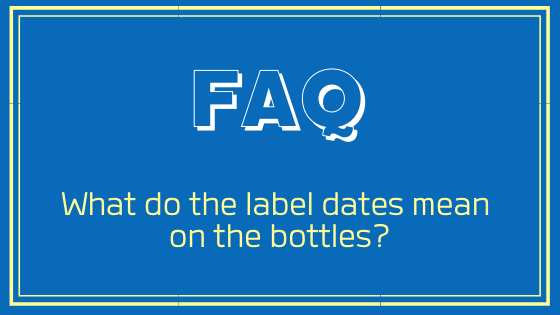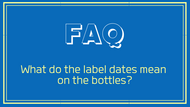FAQ- What do the label dates on the bottles mean?
Posted by TriLight Health on Feb 20th 2020

Q: What do the label dates mean on the bottles?
A: The label date is sometimes known as the restock date, sell-by date, use-by date, or expiration date. Vitamin and herbal manufacturers are allowed to choose their own standards. The U.S. Food and Drug Administration (FDA) and various state laws require:
- that the dates (of the manufacturers' choosing) appear on the bottle.
- that the contents meet or exceed the label potency on the label date.
- that the product is not sold after the label date.
We know that the potency of various herb and vitamin supplements gradually decreases over time. Generally manufacturers place a higher potency than stated on the label in the product at the time of manufacture. Allowing for shelf life, this assures that when the label date is reached, the potency will still be greater than or equal to the stated potency on the package label. This is much different than some drugs that become dangerous after expiration date.
A few supplements will begin to smell as they age. This is especially true for the B complex vitamins and garlic. Herbs often have a natural smell no matter what their age. Here are a few excerpts from a variety of sources that discuss expiration dates:
From: Good Housekeeping:
"Although not required by the Food and Drug Administration (FDA), most vitamins do carry expiration dates, which, experts say, represent the latest date the manufacturer is willing to guarantee the product contains the amount of nutrients listed on the label. Thus John Hathcock, Ph.D., the director of Nutritional and Regulatory Science for the Council for Responsible Nutrition, reveals manufacturers often put extra vitamin power into each dose when manufactured: If the label says each tablet contains 100 units of vitamin E, odds are the tablet was originally manufactured with a 150-unit bang. By expiration time, it's down to [maybe 110, still safely over their minimum labeled target of] 100. One month past the expiration date, [a range of maybe 108 to] 98 or so. However, vitamin C, folic acid, and riboflavin (B2) tend to lose their potency faster than other vitamins [so manufacturer's put more into these supplements at time of manufacture]."
How to store: in a dry, cool, dark place, like your kitchen cabinets, or even in the fridge. Keep bottles closed."
"An expiration date indicates the date after which a product may no longer contain the labeled potency levels. This date reflects the disintegration rate of its ingredients as well as any overage built into the product.
While expiration dates are desirable, they are not always necessary. Certain substances such as calcium carbonate have an extremely long shelf life. Lack of an expiration date in this case is inconsequential.
Because of these uncertainties, it is always best to ask your manufacturer or dealer to explain how expiration dates were determined as well as to justify why they are missing when this is the case."
We print a date because it is a reference point for potency. It is important to us that we provide full disclosure to our customers, rather than vague or general claims of freshness and potency. Most of our customers use the products within a few months after purchase anyway, so the label date is not of consequence. So for anyone determined to keep the products in long term storage the answer is: be aware that they will lose potency over time but they should not go bad and be unusable if they are extracts. Storage of some vitamins in capsules such as B, C or E are effected as already noted.





